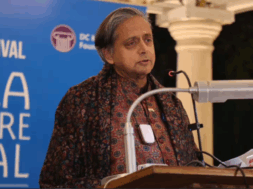
Overcrowding: Japan offers 1mn yen per child to young couples to leave Tokyo
Virendra Pandit
New Delhi: Japan’s capital, Tokyo, has the distinction of being the world’s largest urbanized city—with 38 million population. For years, the government has been trying to persuade people to move out of the overcrowded national capital to reduce congestion. It has even offered financial incentives to encourage them.
Now, the government has increased the financial incentive for young parents willing to relocate from Tokyo from 300,000 yen earlier to 1 million yen (USD 7,600) per child, the media reported on Tuesday.
Earlier, Japan had offered 300,000 yen per child plus 3 million yen as a one-off support payment for those migrating. They may claim more money if they start a business of their own in the suburbs. But this plan remained ineffective as only 2,400 people—or, 0.006 percent of Tokyo’s population—opted for it in 2021.
For years, Japan has been worried because of a rapid change in its demography with a declining birth rate and a high proportion of aging people aged 65 years and above. Despite the government’s steps, the situation has not improved.
In 2017, Japan’s National Institute of Population and Social Security Research said the number of births per annum will fall below 800,000 by 2030. But the population fell below this mark in the first nine months of 2022 itself, suggesting the decline is much faster than expected.
While fewer children are born, more younger people are shifting to Tokyo and other metropolitan cities like Osaka, leaving the smaller cities, towns, and villages increasingly underpopulated. Small businesses and shops in smaller towns have difficulty even finding customers and workers.
The number of empty homes in Japan, which remain unclaimed by heirs, will reach 10 million in 2023. On the other hand, property rates in Tokyo are skyrocketing.
Depending upon the amount of money being inherited, Japan has the highest inheritance tax globally, ranging from 10 percent to 55 percent. The calculation also depends upon the number of heirs. It applies to both nationals and foreigners.
According to Japan’s Civil Code, half of the deceased’s property goes to the spouse, and the other half is distributed among the heirs.
That is why many heirs do not claim the property of their family and avoid paying exorbitant taxes, leaving it empty.













